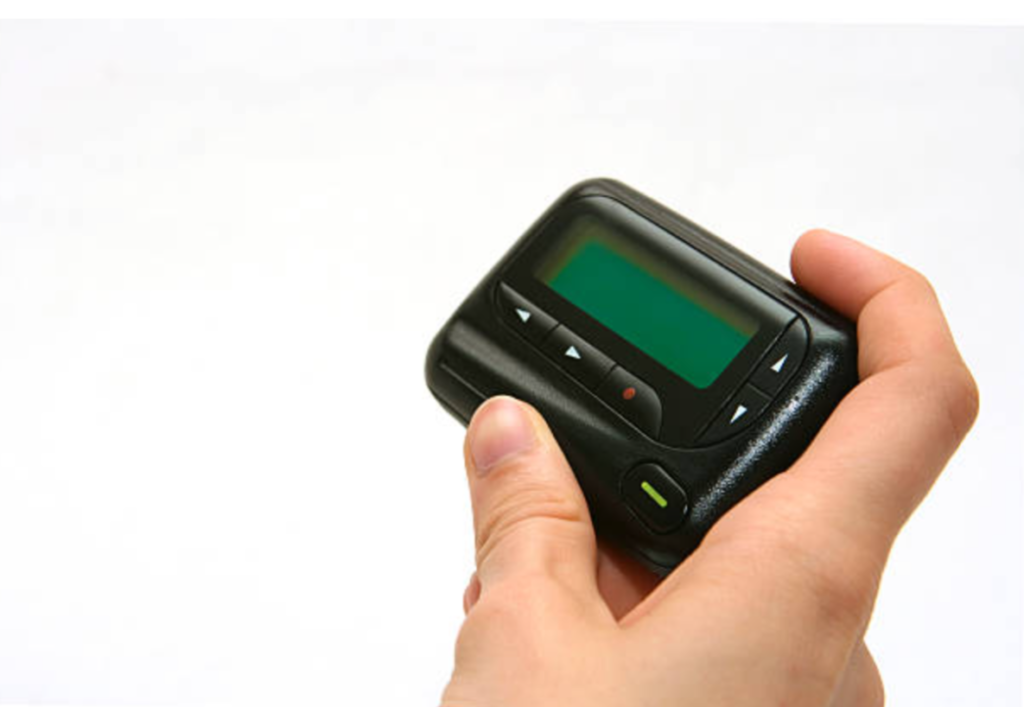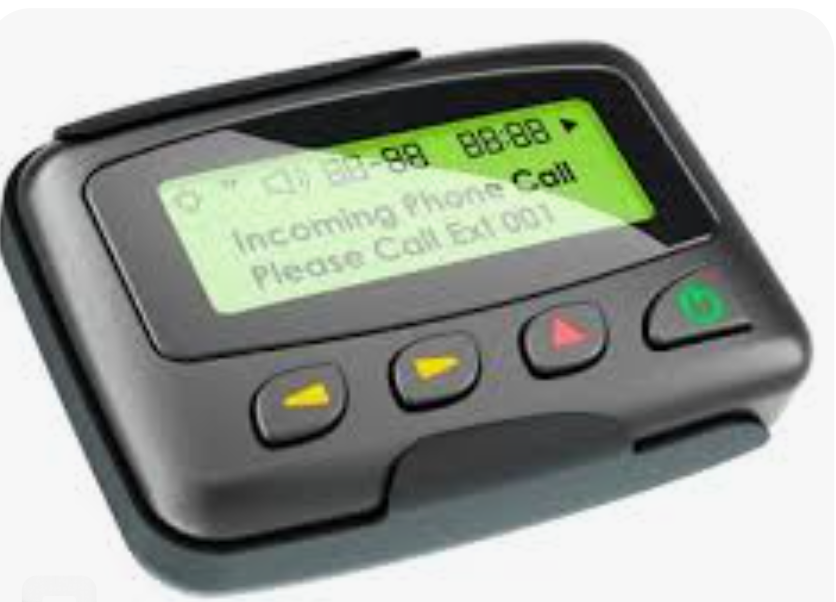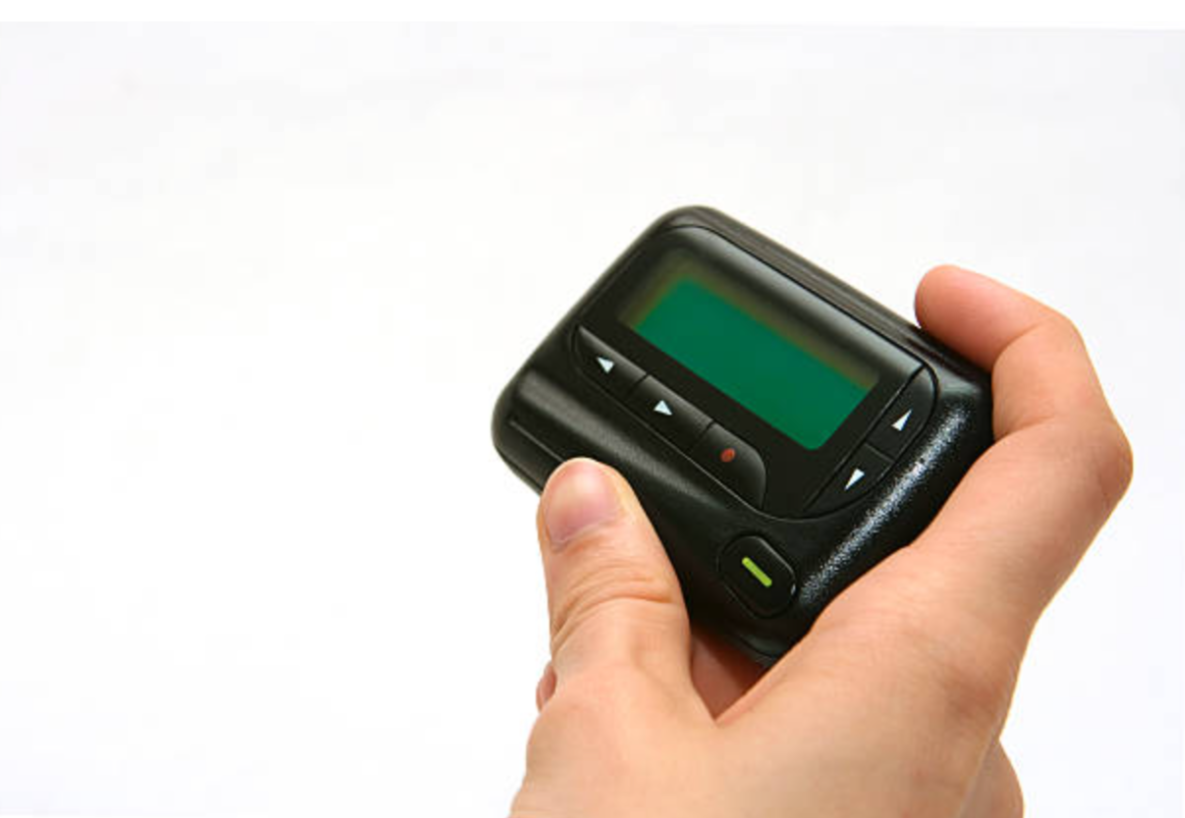The Hezbollah Pager Explosion:
In a recent tragic event, at least nine people were killed and almost 3,000 injured in Lebanon after thousands of wireless devices used by Hezbollah exploded. These devices, identified as pagers, had been secretly rigged with explosives, allegedly by Israel’s Mossad spy agency. This event raises a critical question: why does Hezbollah, a modern militant organization, still depend on such outdated technology as pagers?
This article examines what pagers are, how they work, why Hezbollah continues to use them, and how the recent incident sheds light on the broader implications of their reliance on these devices.

The Pager Explosion: What Happened?
The explosion took place when a batch of pagers, reportedly ordered by Hezbollah months earlier, detonated. According to Lebanese security officials, 5,000 pagers imported from Taiwan-based Gold Apollo were compromised with explosives, possibly planted by Mossad. The pagers were intended for Hezbollah’s use as a low-tech, reliable communication tool, a stark contrast to modern smartphones and digital systems. The explosive-laden devices caused mass destruction, leading to loss of life and injuries across Lebanon.
This incident has brought global attention to Hezbollah’s use of pagers, a device many consider obsolete in the age of smartphones.
What Are Pagers?
Pagers, also known as “beepers,” are small, portable devices that receive short numeric or alphanumeric messages over radio frequencies. They were once the primary mode of communication before the rise of mobile phones. Doctors, journalists, technicians, and other professionals often used pagers to stay connected, even in remote areas.
The first pager was patented in 1949 by inventor Alfred Gross. In 1959, Motorola officially registered the term “pager,” and the company’s Pageboy 1, released in 1964, marked the first significant commercial success. Initially, pagers only provided audible alerts, but technological advancements in the 1980s allowed these devices to display written messages on a small screen.
At the height of their popularity in 1994, there were 61 million pagers in use globally, according to data from US-based manufacturer Spok. However, with the rapid rise of mobile phones in the 1990s, pagers gradually faded from widespread public use.
How Do Pagers Work?
Pagers operate using a relatively simple mechanism. When a message is sent, radio waves carry the signal to the pager, which beeps or vibrates to alert the user. The message, often a short text or numeric code, is then displayed on the pager’s screen. Users would typically receive the alert and then use a landline phone to respond to the message.
Pagers do not rely on cell towers or internet connections, making them functional in areas where mobile service may be disrupted. This reliability makes them particularly attractive for specific professions and, as it turns out, for militant groups like Hezbollah, which prefer discreet, low-tech communication tools.
https://topnewssurf.com/pakistan-ballistic-missile-program-us-imposes/
Why Does Hezbollah Still Use Pagers?
Despite the prevalence of modern communication technologies, Hezbollah continues to rely on pagers for several reasons:
1. Low Detection Risk
Pagers are much less vulnerable to surveillance than smartphones or other digital devices. Modern intelligence agencies, including Israel’s Mossad, have sophisticated capabilities for intercepting phone calls, messages, and internet data. However, pagers use radio frequencies that are harder to hack and monitor. By avoiding GPS, Bluetooth, and Wi-Fi signals, pagers present fewer opportunities for adversaries to track or eavesdrop on communication.
2. Avoiding Geolocation
One of the primary risks of using smartphones in a conflict zone is geolocation. Smartphones transmit data that can be traced back to the user’s physical location through cell tower triangulation or GPS tracking. Pagers, on the other hand, do not send out constant signals, which makes tracking a user’s whereabouts far more challenging. This makes pagers an attractive option for militants who want to avoid detection.
3. Operational Simplicity
Pagers are not only harder to trace but also easier to use. Their simplicity ensures that even if they are compromised, they carry less sensitive information. Pagers transmit only basic messages, reducing the chances of a major security breach. For Hezbollah, this low-tech approach provides a secure way to communicate essential information without leaving a large digital footprint.
4. Reliability
Pagers are more dependable in environments with poor cell service or frequent power outages. Since they operate on radio waves, they are less affected by disruptions in mobile or internet services. In war-torn regions where infrastructure is unreliable, pagers continue to function, ensuring uninterrupted communication. The simplicity and long battery life of these devices also contribute to their appeal for groups like Hezbollah.
The Downside of Using Pagers
Despite their advantages, pagers come with significant risks, as the recent explosion highlights. When tampered with or compromised, pagers can cause significant harm, as evidenced by the deaths and injuries in Lebanon. Hezbollah’s reliance on a large number of these devices also presents logistical risks, especially when adversaries like Mossad are capable of manipulating hardware.
Additionally, the limited amount of information that can be transmitted via pagers poses an operational challenge. As military and intelligence operations become increasingly complex, the need for more sophisticated communication methods becomes more pressing. Pagers, with their limited capacity, cannot fulfill all communication needs, requiring Hezbollah to use supplementary systems, which in turn, can be more vulnerable to surveillance.

The Future of Pagers in Conflict Zones
The use of pagers by Hezbollah raises broader questions about the role of low-tech devices in modern warfare. While smartphones and encrypted communication platforms dominate the civilian market, militant organizations often mix old and new technologies to keep their communications secure. Hezbollah’s continued use of pagers, despite their limitations, reflects a strategic choice to avoid the vulnerabilities of more modern digital tools.
It’s uncertain how long Hezbollah and other similar groups will continue to use pagers. However, as long as they remain effective in evading surveillance and ensuring operational security, it is likely that these low-tech devices will continue to play a role in their communication networks.
The Pager’s Legacy in Modern Warfare
The tragic explosion of Hezbollah’s pagers serves as a grim reminder that even outdated technology can have deadly consequences when compromised. Pagers, once the hallmark of professional communication, now serve as a tool for groups seeking to avoid the digital surveillance of the modern age.
Though considered obsolete by many, pagers remain a crucial element of Hezbollah’s communication strategy, offering simplicity, reliability, and security in the face of modern threats. As technology continues to evolve, only time will tell if these outdated devices will finally be replaced, or if their unique advantages will keep them relevant in conflicts to come.




